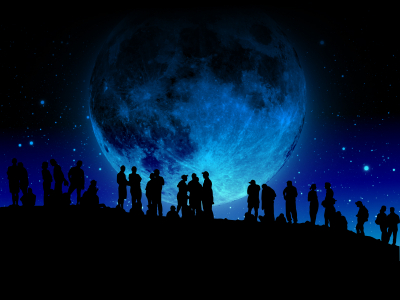 Submitted by JR on
Submitted by JR on

Yeah, we all want to create a better world, but as the old saying goes – “what are you prepared to do about it?” Are you ready to “walk your talk”? Are you going to “put your money where your mouth is”? Am I going to use another cliché here? I hope not.
The point is this – if you or I have concerns about the current state of the world, then you or I have a responsibility to do something about it.
Yet that raises two immediate questions – what is exactly is a “better world” and what can we do to create it?
Worldviews and a Better World
The first question relates to something one of my teachers, Don Beck, likes to ask – yes, we all want to see change, “but change from what to what?” In other words, what is it exactly that we are experiencing that we would like to change and what are the characteristics of that “better world” that we would like to see in its place?
How we answer those questions says a lot about us. Each of us carries an invisible set of values that guides the selection of what we perceive, what we think about what we perceive and our reaction to it. As a type of shorthand, this package of values is typically referred to as a “worldview”. The changes we wish to experience in creating that better world is determined to a large part by the worldview we hold.
Here’s an overly brief summary of the major worldviews at play in our modern world.
A large segment of our society holds what is called a “traditional worldview” marked by a desire to maintain their long-held “family values” and driven by their belief in their religious faith. A better world for many of these individuals is one where we revert back in many areas of life to an imagined better past.
Another large segment of our society holds what is called a “modern or materialistic worldview” marked by faith in the power of material science to solve all our problems and seeing much of the meaning of life as being about the accumulation of personal wealth. A better world for many of these individuals is one where we allow individuals and corporations to create wealth and new technology without any restrictions or limitations.
The third large segment of our society holds what is called a “humanistic or cultural creative worldview” marked by egalitarian and humanitarian themes – valuing the importance of every person and their right to hold their own personal beliefs and valuing our taking care of this world we live in. A better world for many of these individuals is one where there is equal rights for all individuals, social programs to meet basic needs and a common effort to protect our planet. [See NOTE below for more on worldviews.]
Ultimately, how we answer the question of what a better world is directly ties to our viewpoint. And that answer guides us to our answer to the second question of what we can do to create that world. Much of our current difficulties in moving to a greater society is that we are all tugging in a different direction – imagine a game of tug o’war where the rope has three or more ends on it! No one “wins” and everyone is frustrated. Is there a way out of this dilemma? Is there a greater society waiting to be discovered?
An Effective Society Versus a Greater Society?
Business guru Stephen Covey touched many of us with his bestseller The Seven Habits of Highly Effective People. He had studied leaders who were considered “effective” to determine their common characteristics and then summarized them for us. Each of us then went about trying to embody these habits so we too could become “effective” in whatever we hoped to accomplish, regardless of our worldview and desires for life.
However as I have pointed out in other articles previously, Covey “evolved” in his thinking and wrote a sequel to his bestseller entitled The Eighth Habit: from Effectiveness to Greatness. Here he laid out his discovery of a human “habit” that exceeded the boundaries of simply being “effective”.
What was “greatness” in the words of Covey? It was “Find your voice and inspire others to find theirs.” By “voice”, he meant your unique personal significance, your calling, your purpose.
If we were to expand Covey’s discovery such that many of us claimed such a habit of greatness, could it be that it would lead to a greater society — one where we each identify our own unique personal life purpose, live it – and help others to find and live theirs?
It would be easy to dismiss Covey’s eighth habit as a natural product of his moving into a cultural creative worldview. It does have a tinge of egalitarianism. Yet, I see it differently – I hear him calling us to a higher worldview, one that transcends and includes the traditional, materialistic and humanistic viewpoints. This habit is part of the “momentous leap in consciousness” that Spiral Dynamics’ Clare Graves wrote about….or the “integral” worldview discussed by integral theorists such as Ken Wilber.
At this integral level of awareness – we begin to release judging others and their viewpoints when they differ from us. Instead, we recognize the value of the diversity of opinions and how our moving or evolving through these various worldviews has served humanity’s overall growth. Each worldview served an important purpose in our collective evolution. At this higher level, Covey tells us that leadership and greatness become about choosing “to deal with people in a way that will communicate to them their worth and potential so clearly they will come to see it in themselves.”
If each person in society was able to embrace such integral awareness and greatness for themselves, can you imagine what a greater society would be produced in the process?
Yet perhaps there is another aspect to this greater society we need to consider….
A Spiritualized Society?
Many consider one of the first real “integral” thinkers to be an Indian teacher by the name of Sri Aurobindo (1872-1950). Born in India, he was schooled in England before returning home as a young man and becoming immersed in the politics of seeking an independent India. His actions led to his arrest and while spending a year in prison, he meditated on the great spiritual text, the Bhagavad-Gita. Upon his release, he withdrew from politics so as to focus on spirituality.
Aurobindo’s new “integral yoga” sought to bring together the two major influences in his life – Western science and Eastern religion. He recognized there was value in both. Ultimately, he sought to create a spiritual philosophy and practice that valued both the wisdom gleaned from going inward through meditation and outward through the experiences of physical life. His teachings were detailed in numerous books, including what most consider his greatest, The Life Divine.
Aurobindo recognized that humanity was moving through a spiritual evolutionary journey. He knew that the next steps in our journey would be within our individual consciousness where we would begin to bridge what had appeared to us as opposites. With such insights, we would discover that God or the Divine was to be found just as much in the physical world as the non-physical world; that the Divine was inside us as well as outside us; and that the Divine was in science, economics, politics and all aspects of society.
In fact, Aurobindo envisioned that humanity would eventually embrace what he termed a “spiritualized society”, one that would “make the revealing and finding of the Divine self in [humanity] the whole first aim of all of its activities, its education, its knowledge, its science, its ethics, its art, its economical and political structure.… It would embrace all knowledge in its scope, but would make the whole trend and aim and the permeating spirit not mere world efficiency, but this self-developing and self-finding.”
In other words, Aurobindo saw that a spiritualized society – what we might consider our true greater society – was one where all of our social systems were focused upon revealing the divinity within each and every person. Such a society would reveal to each person (to paraphrase Covey) “their real true worth so clearly that they come to see it in themselves”.
Becoming The Great Revealers
All of this brings us back to our original question – what are we prepared to do to create a better world?
Now I recognize that many of you reading this..if you have made it this far….may disagree totally with this picture of a true greater society that I have described. I recognize that you may hold so deeply to your traditional, materialistic, humanistic or other worldview that even the idea of there being other valid viewpoints from yours seems totally false. Creating a society around revealing our true Divinity may sound like blasphemy or hogwash to you. If so, that is fine. I honor you for holding your belief in life, whatever it might be.
But if, just if….the idea of this true greater society built around our honoring our differences, valuing all of the stages of our evolutionary path, and creating social systems designed to reveal to us our true Divine nature resonates with you, then here are a few ideas on what you can do to move us collectively towards that true greater society:
- Create the intention within your thoughts that this world is possible. Visualize it, feel it, sense it. Know that it is not only possible, but it will happen.
- Read the inspired thoughts of wise teachers such as Covey, Aurobindo and others who are pointing us towards a world that works for everyone.
- Release blame or judgment towards others for their beliefs. You don’t have to agree with them, but you can certainly understand how their lives, culture and worldview led them to such beliefs.
- As you interact with others, practice seeing and sensing the divinity within them. Recognize and know that on some deep level which may be unseen by you, that you are really connected.
- Identify your life purpose and begin to live it.
- Help others to find their voice, their internal gift, and encourage them to share it.
- Practice being a beneficial presence in all your interactions.
Through these actions and others you will discover, together we can all become revealers of our true greater society.
Mark Gilbert
http://consciousbridge.com/wordpress/articles/featured-article/revealing-our-true-greater-society/
- 946 reads